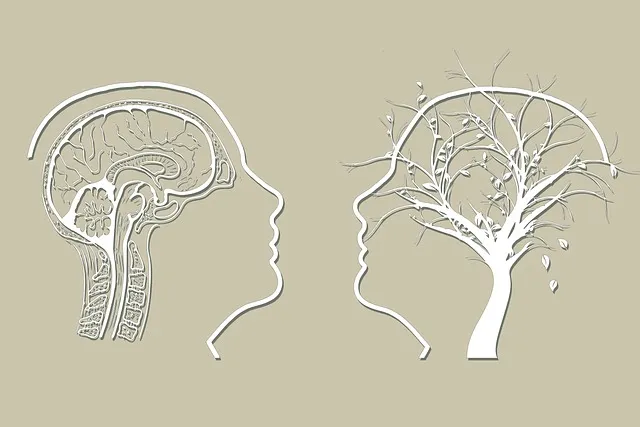The Arvada Kaiser Permanente mental health center tackles mental illness stigma through accessible services and open conversations during visiting hours, empowering patients with self-care routines. Structured initiatives like workshops and training equip professionals to provide compassionate care, fostering empathy within the community. Community engagement events challenge stereotypes and promote understanding, making mental health support more welcoming and reducing barriers to access.
Mental illness stigma remains a significant barrier to treatment, affecting millions worldwide. This article explores targeted efforts to reduce this harmful perception, focusing on practical strategies employed by healthcare organizations, community engagement, and educational initiatives. We highlight the successful model of the Arvada Kaiser Permanente Mental Health Center, known for its accessible care and support, offering valuable insights into how such centers can make a tangible difference in destigmatizing mental health seeking.
- Understanding Stigma: Its Impact on Mental Health Seekers
- The Role of Healthcare Organizations in Stigma Reduction
- Community Engagement Strategies for Positive Change
- Educational Initiatives: Challenging Misconceptions
- Arvada Kaiser Permanente Mental Health Center: A Model for Accessible Care and Support
Understanding Stigma: Its Impact on Mental Health Seekers

Stigma surrounding mental illness can have a profound impact on individuals seeking help, often leading them to delay or avoid treatment altogether. This is particularly concerning given that early intervention and consistent support are crucial for effective management and recovery. At the Arvada Kaiser Permanente mental health center, visiting hours provide a valuable opportunity for community members to understand and challenge these negative perceptions. By normalizing conversations about mental health, these visits can dispel myths and promote empathy, fostering an environment where people feel comfortable discussing their struggles openly.
Moreover, reducing stigma is not just about individual interactions; it’s a systemic issue that requires structured approaches. Organizations like the Stress Management Workshops provide valuable resources for mental health professionals, offering training in risk management planning to ensure practitioners are equipped to handle diverse client needs while maintaining compassionate care. Additionally, Healthcare Provider Cultural Competency Training programs play a vital role in preparing caregivers to address the unique challenges faced by diverse communities, further dismantling barriers and encouraging timely access to mental health services.
The Role of Healthcare Organizations in Stigma Reduction

Healthcare organizations, such as the Arvada Kaiser Permanente mental health center, play a pivotal role in stigma reduction efforts. By providing accessible services and promoting open conversations about mental health, these institutions can significantly shift societal perceptions. Visiting hours at such centers offer a unique opportunity for community engagement, allowing folks to witness firsthand the supportive environment and the diverse range of individuals seeking help. This direct experience can foster empathy and dispel myths surrounding mental illness.
Moreover, healthcare providers within these organizations can integrate practices like Mindfulness Meditation and Compassion Cultivation into treatment plans. These evidence-based techniques not only support individual well-being but also contribute to a broader culture of understanding and care. Encouraging patients to develop Self-Care Routine Development for Better Mental Health further empowers individuals to take charge of their mental health, reducing the stigma associated with seeking help and embracing proactive measures.
Community Engagement Strategies for Positive Change

Community engagement is a powerful tool in the fight against mental illness stigma. Organizations like Arvada Kaiser Permanente mental health center play a vital role by offering accessible services and educating the community about visiting hours, fostering an environment where individuals feel comfortable seeking support. Through interactive workshops, panel discussions, and community events, they promote open conversations about mental health, challenging stereotypes and reducing the social isolation often experienced by those living with conditions like depression or anxiety disorders.
These engagement strategies extend beyond individual interactions. By collaborating with local schools, businesses, and faith groups, mental health professionals can implement evidence-based programs such as Crisis Intervention Guidance and Emotional Well-being Promotion Techniques. Risk Management Planning for Mental Health Professionals also becomes more effective when communities actively participate in these initiatives, ensuring a comprehensive approach to stigma reduction that reaches all segments of society.
Educational Initiatives: Challenging Misconceptions

Educational initiatives play a pivotal role in reducing the stigma surrounding mental illness. One such effort is the Arvada Kaiser Permanente mental health center, which offers visiting hours designed to foster open conversations and dispel misconceptions. By providing a safe space for community engagement, the center encourages individuals to learn about various mental health conditions, including their causes, symptoms, and available treatments.
Through workshops, seminars, and peer support groups, the center promotes resilience building, mood management, and stress reduction methods, empowering individuals with practical tools to navigate their mental health journeys. These educational programs not only help in understanding but also in creating a supportive environment where people feel comfortable seeking help without fear of judgment or stigma.
Arvada Kaiser Permanente Mental Health Center: A Model for Accessible Care and Support

The Arvada Kaiser Permanente Mental Health Center stands as a beacon of hope and accessible care within the community. This center embodies best practices in mental health services, offering a welcoming environment where individuals can receive expert treatment and support. With flexible visiting hours designed to accommodate diverse schedules, it ensures that patients feel empowered to seek help without barriers. The center’s commitment to fostering mental health awareness and promoting emotional intelligence through its comprehensive programs is noteworthy.
By prioritizing patient-centered care, Arvada Kaiser Permanente fosters an atmosphere of understanding and recovery. Their approach encourages open conversations about mental health, challenging the societal stigma that often prevents individuals from seeking assistance. Through initiatives focused on positive thinking and resilience, the center equips patients with valuable coping strategies. This holistic strategy not only addresses immediate needs but also empowers individuals to maintain long-term mental well-being.
Mental illness stigma reduction is a multifaceted endeavor that requires collaboration from healthcare organizations, communities, and educational institutions. As seen with the successful model at the Arvada Kaiser Permanente Mental Health Center, accessible care and support can significantly impact positive change. By challenging misconceptions through educational initiatives and fostering community engagement, we can create an environment where those seeking mental health services feel supported and empowered. Understanding the impact of stigma and actively working to reduce it is crucial for improving mental health outcomes for all. Visitors to the Arvada Kaiser Permanente mental health center can expect a welcoming atmosphere during their visiting hours, reflecting the center’s commitment to accessible care.






